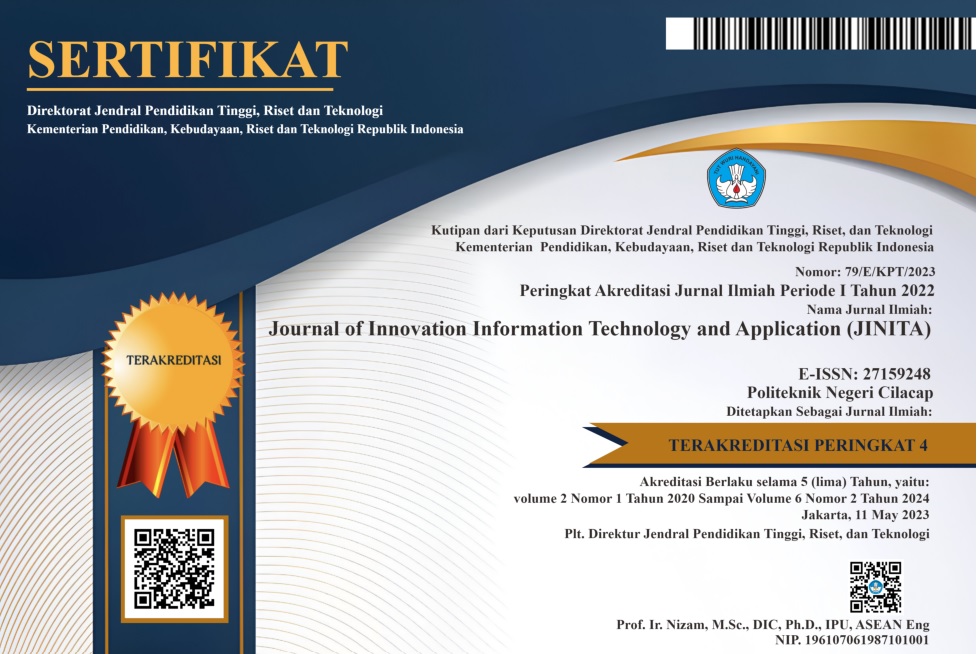Metode Weighted Product Pada Pendukung Keputusan Pemilihan Pengurus Himpunan Mahasiswa
 Abstract views: 275
,
Abstract views: 275
,
 PDF downloads: 257
PDF downloads: 257
Abstract
The Department of Student Association (HMJ) is a student organization at the department level in a university which is an extracurricular activity. HMTI or Informatics Engineering Student Association is one of the HMJ at the Politeknik Negeri Cilacap (PNC). HMTI certainly has a vision and mission, therefore, in order to realize the vision and mission, candidates for management are needed according to the expected criteria. The criteria for determining the decision making of HMTI management include organizational experience, psychology, public speaking, self[1]confidence, having a warning letter (SP) and IPK. This problem was overcome by making a Decision Support System for the recruitment of HMTI management using the weighted product method. This system makes it easy for HMTI coaches and administrators to determine the candidate for the board. Decision Support System (DSS) is an application of information systems aimed at assisting leaders in the decision-making process. This study resulted in recommendations for prospective HMTI PNC administrators who through optimization of the weighted product method with various criteria used had the highest value, so that they became a reference for HMTI supervisors and administrators to choose candidates for the following year
Authors who publish with this journal agree to the following terms:
- Authors retain copyright and grant the journal right of first publication with the work simultaneously licensed under a Creative Commons Attribution License that allows others to share the work with an acknowledgement of the work's authorship and initial publication in this journal.
- Authors are able to enter into separate, additional contractual arrangements for the non-exclusive distribution of the journal's published version of the work (e.g., post it to an institutional repository or publish it in a book), with an acknowledgement of its initial publication in this journal.
- Authors are permitted and encouraged to post their work online (e.g., in institutional repositories or on their website) prior to and during the submission process, as it can lead to productive exchanges, as well as earlier and greater citation of published work (See The Effect of Open Access).
















